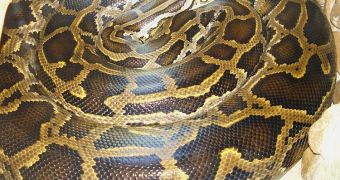Burmese pythons contain a mix of chemicals in their bodies that is apparently capable of promoting the production of new cardiac cells in the bodies of lab mice. The new tissue looked as if it was created following vigorous exercises.
All the three fatty acids that investigators discovered during this study were found in this particular composition in this python species alone. The research team says that mice exposed to the mixture for only a week exhibited a 10 percent increase in the overall mass of their heart chambers.
Needless to say, if such a technique could be translated to humans, it would lead to significant quality-of-life improvements for millions of people suffering from a variety of cardiovascular diseases around the world. However, clinical tests have not yet begun on humans.
The research team that conducted the research – which is based at the Washington University in St. Louis (WUSL) School of Medicine (WUSM) – published details of the work in the October 28 issue of the top journal Science.
Before this study began, experts discovered that some pythons have the ability to naturally enlarge their own hearts, sometimes by as much as 40 percent over a period of two to three days, Science News reports. The timing of heart enlargements coincided with the snakes' rare meals.
Generally speaking, cardiologists frown upon seeing heart enlargements in humans. However, the type of tissue increase that researchers noticed in the test mice resembled the healthful type of development seen in athletes more than enlargement seen in sick people.
“We used the extreme biology of a snake to create a beneficial type of cardiac enlargement in mammals,” University of Colorado in Boulder (UCB) research leader Leslie A. Leinwand explains.
WUSM investigator Gerald Dorn explains that the snake-derived chemicals should not have theoretically worked on mice, since the rodents eat almost non-stop. Pythons may have developed this ability as an evolutionary response to their rare meals.
The expert adds that he finds the study to be extremely promising for human applications as well. He admits that some time will pass until such a compound would be approved for general use, but says that such a chemical mixture could be well-worth the wait.
Leinwand agrees that the finding has tremendous potential for the development of new medical therapies for people suffering from a wide variety of heart diseases.

 14 DAY TRIAL //
14 DAY TRIAL //